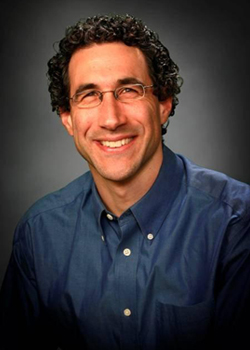Media
Contact
Communications Specialist
Faculty of Engineering
Spencer Engineering Building
Room 2072
Western University
Tel: 519-661-2111 ext. 87015
Email: engineeringcomms@uwo.ca
Thinking outside the bowl
By Nicole Laidler | March 20, 2013

Jason Gerhard
The next time you flush, take a moment to consider the estimated 2.5 billion people worldwide who don’t have access to safe, affordable sanitation.
It’s an issue that Western Civil and Environmental Engineering professor Jason Gerhard has been thinking about a lot over the last 18 months.
Gerhard is part of a team led by University of Toronto Engineering professor Yu-Ling Cheng that recently placed third in the Bill and Melinda Gates Foundation’s Reinvent the Toilet Challenge. The prize comes with a grant worth $2.2 million for 15 months to turn the science behind their green toilet into a working prototype.
Of that amount, $418,000 will be coming to Western.
Launched in July 2011, The Gates Foundation challenge asked university research groups from around the world to redesign the toilet as a stand-alone unit that quickly destroys all of the pathogens that make people sick yet without piped-in water, a sewer connection, or outside electricity, and all for less than 5 cents per person per day.
Currently, more than a billion people defecate in the open, often with tragic consequences; around 1.5 million children die each year from diarrheal disease caused by food and water contaminated by fecal matter.
The University of Toronto/Western team was one of eight to showcase their ideas at a two-day event held at the Gates Foundation headquarters in Seattle last August.
“There were a lot of ideas for large scale systems, things that would work well if you brought together a lot of people’s waste,” noted Gerhard. “Our toilet was one of the few that really can disinfect waste within 24 hours and can do it to the scale of a single-family toilet.”
Gerhard was invited to join the University of Toronto team because of his expertise in soil remediation.
Western’s Research for Subsurface Transport and Remediation (RESTORE) research group has developed a technique for destroying industrial chemicals that pollute soil, Gerhard explained.
“Not only is it very effective at destroying contaminants, but it has very low energy requirements,” he said.
With the University of Toronto taking the lead in treating liquid waste, including wash water and urine, Gerhard was asked to investigate whether Western’s soil remediation method could be used to treat human feces. “We spent the first year proving that we could,” he said.
The technique involves mixing solid waste with sand and then burning it in a specially-designed smoldering chamber, much like a charcoal barbeque.
“Charcoal leaves an ash because it contains quite a few inorganics that won’t burn, but feces is almost all organic so there’s almost no ash. You just walk away and when you come back it’s all gone,” Gerhard said. “The key is mixing it with the sand appropriately, igniting it in a very energy efficient way, and then allowing it to generate its own heat and to destroy itself.”
Of course, any new toilet will only be effective if people use it – which is not always the case.
“There are toilets in Haiti, for instance, that people use as storage sheds because some NGO came in and just plunked it down,” Gerhard said.
To avoid a similar fate, the team is working with partners on the ground in Bangladesh who have identified three test locations – a poor urban neighbourhood, a poor rural neighbourhood, and a middle-income rural neighbourhood.
“They are doing surveys with user groups about what people want, what practices are now, and what would be a positive change,” Gerhard explained.
A team of fourth-year Western engineering students is also working on a design for the outside shell – something that could be produced locally, withstand monsoons and floods, but also remain cool in the summer – as well as a suitable business model.
“They are doing joint degrees with the Ivey School of Business and are looking at the whole supply chain and what might work in the developing world,” Gerhard said.
Three prototype toilets should be ready for trials in Bangladesh this September, in preparation for the next Gates Foundation showcase in December 2013.
“The timeline is very challenging,” said Gerhard, noting that it’s much shorter than the typical three-to-five year grant cycle common in university research settings. “To prove a concept in one year and then to build a prototype in one year, we’re acting like a corporation with a very specific deadline.”
Despite the challenging pace, Gerhard is excited to be part of the team. “It’s a fantastic opportunity for me personally because it gives me the chance to transition what I’ve been doing (in soil remediation) into an application that could make a difference for billions of people.”

